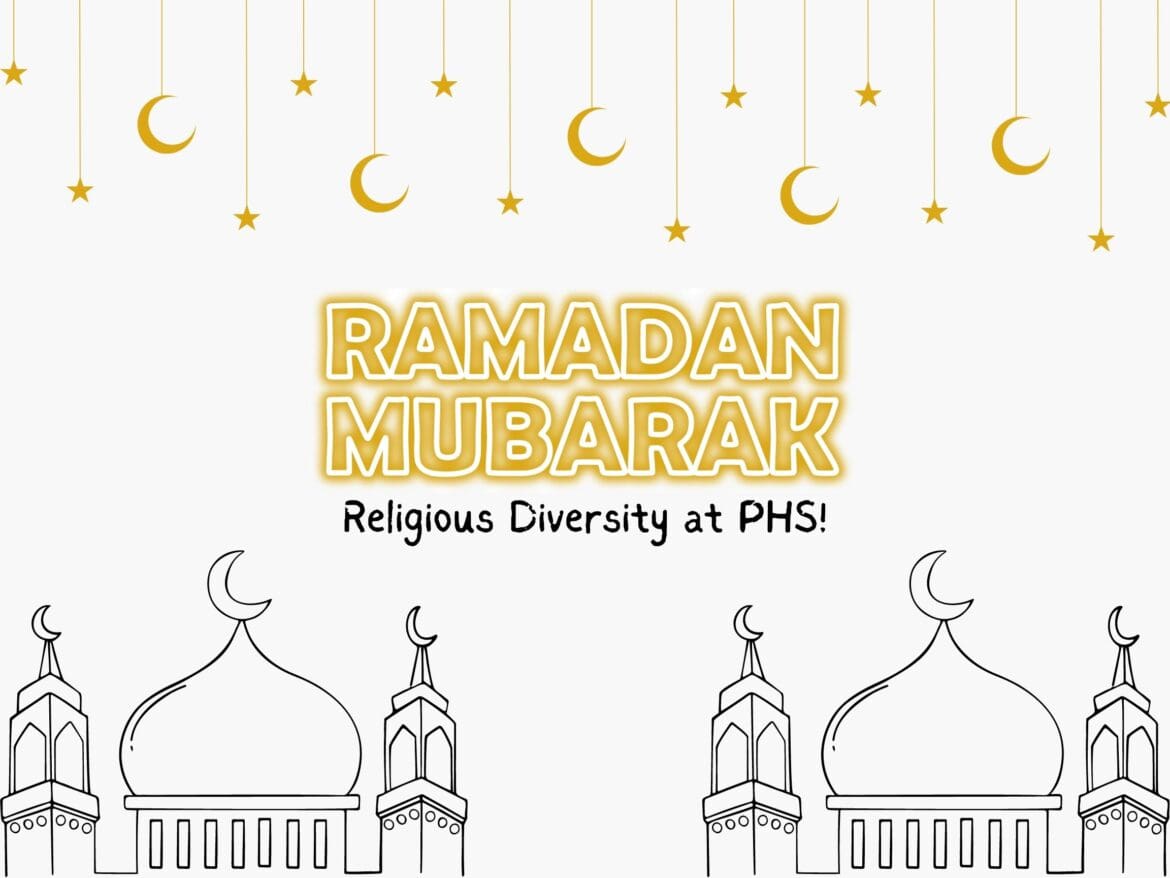HibaMudassir
eSomethin Staff
Ramadan (Arabic: رَمَضَان) is the 9th month in the Islamic calendar. It is widely known as the holy month of fasting, observed by Muslims world wide. Perrysburg has a fairly large Muslim population and all healthy adults are expected to observe the fast.
Fasting is a fundamental pillar in the religion of Islam. It is very common for Muslim children to start fasting at an early age, some as early as six years old. Most kids who fast follow in their older siblings footsteps and at an age so young, it is almost considered a rite of passage.
The high school has many students who will be observing fasts during this month starting at the end of March and continuing until the end of April. They will be fasting from dawn to sunset for a month, which means refraining from food and water for that time. Perrysburg High School provides accommodations for students who choose to fast during Ramadan.
“The only accommodation that I know of is the room that they have, I think it’s the Jacket Room, where students can go when they’re fasting. But that’s really the only thing I know of and I know last year they didn’t talk about it much, it was sort of an underground thing. I had to talk to other people just to know it existed,” said Taqwa Arif, a junior, and President of the Muslim Student Association.
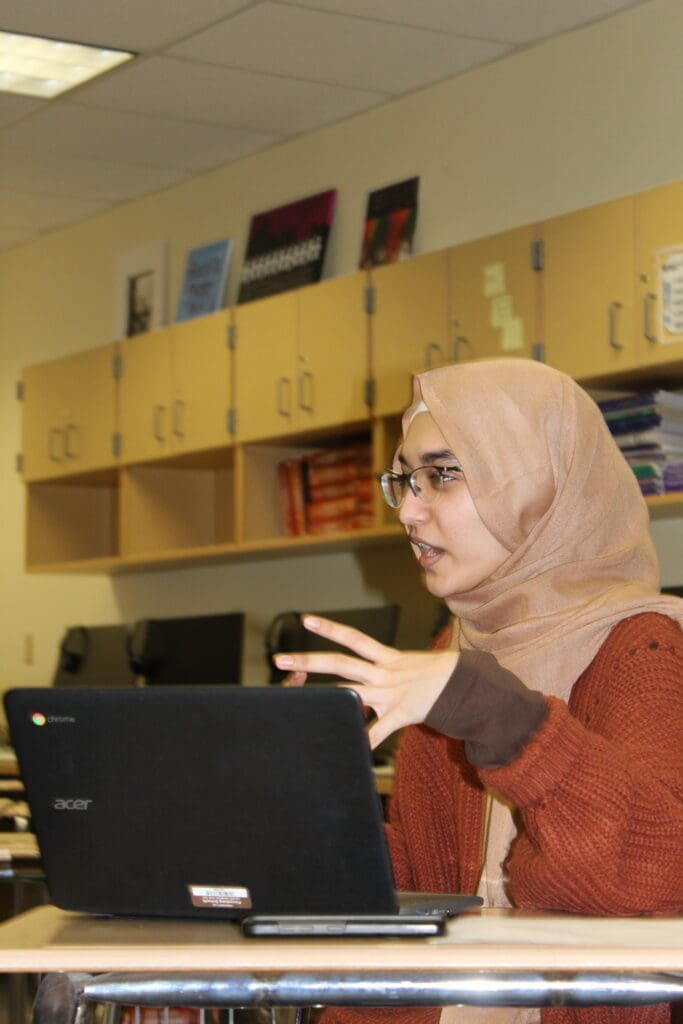
Arif added that she was happy with how well the administration had handled everything but, “I feel like, if we talk about it more and make it more well known then teachers will be more understanding as well.”
She hopes that this year, with the help of the Muslim Student Association, she can spread more awareness about Ramadan and the act of fasting.
“We plan to educate,” said Arif. “We plan to have an event called Ask a Muslim. We’ll have Muslim students sit at lunch at a booth and if you have any questions you can go and talk to them and have those conversations that otherwise you might not be able to have […] we’ll also have the pamphlets there that they [the students] can just grab.”
And there is definitely a want to learn in the student body. Allison Ludwig, a PHS junior and a member of the MSA said, “I’ve learned a lot from asking questions to Taqwa, and I’ve done research on my own […] I think it’s important that we don’t judge people for doing it before we really know what it’s about.”
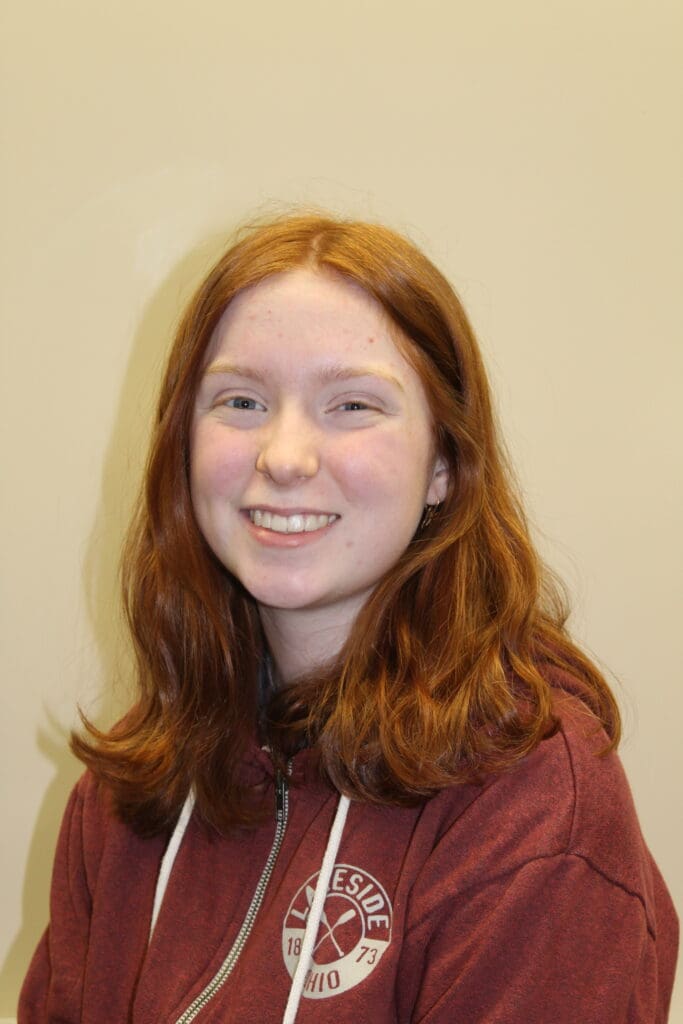
“I assume a lot of people will automatically think it’s stupid or something to not eat for that long but there’s definitely a meaning behind it. I also think that even for people who aren’t Muslim, fasting can be a way to center yourself, or learn about your own religion so it is important to learn,” she added.
“I would like to know the origins of it [Ramadan] and why it’s so important. Anything that I don’t know, because I don’t really know what I don’t know.” said Aleigha McNulty, a PHS junior.
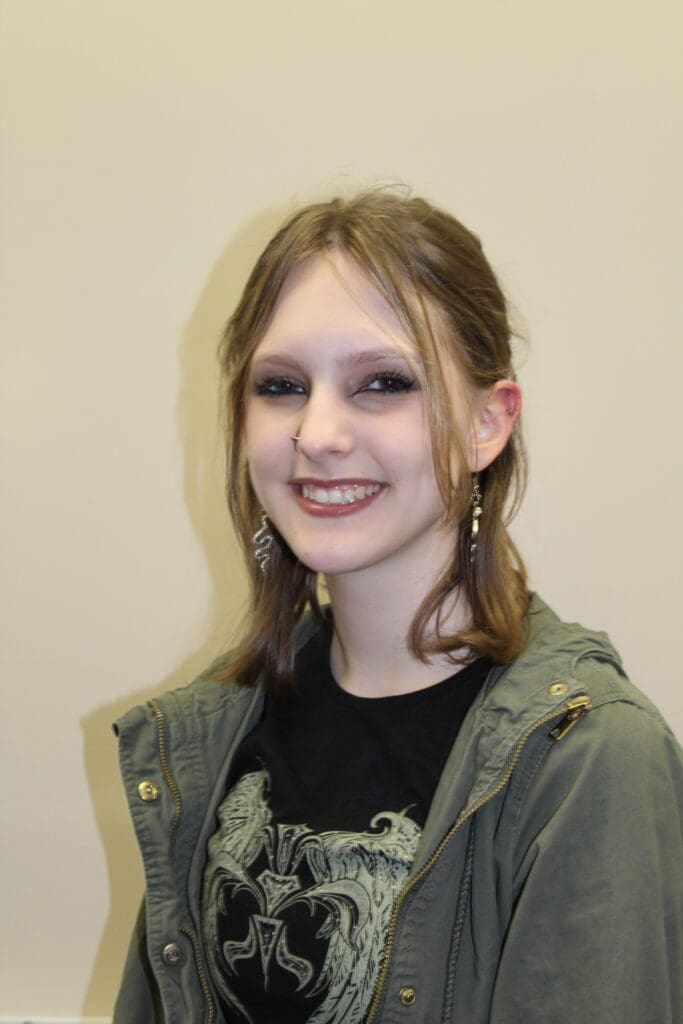
“When you don’t know about it, it creates a lot of ignorance. Especially when you have other people who are just blatantly rude and Islamophobic who say things and when you don’t know about it you kind of take their word for it,” added McNulty.
Because of unkind stereotypes and misinformation, Muslim students are subjected to more mental stress rather than being able to focus on self improvement and inner peace during their fasts.
“I think the stereotype is that you don’t eat for a month, I get that a lot,” said Sarah Zouaoui, PHS senior and Vice President of the Muslim Student Association at the high school. “I don’t know why people think we’re starving ourselves cause you’re really not starving yourself […] Another stereotype is that it’s just food and water when it’s actually about everything, like not cursing, and fasting from any negative thing in your life.”
This unfortunately leads to a lot of Muslim practicing students feeling left out, or ashamed about their culture.
“Not everyone always feels comfortable identifying with, generally what’s considered a religious minority […] and while we do have a pretty wonderful variety of people I think that being someone who’s not part of that really big group can sometimes be really intimidating.” says Mrs Katie Reilly, an English teacher and advisor of the Muslim Student Association.
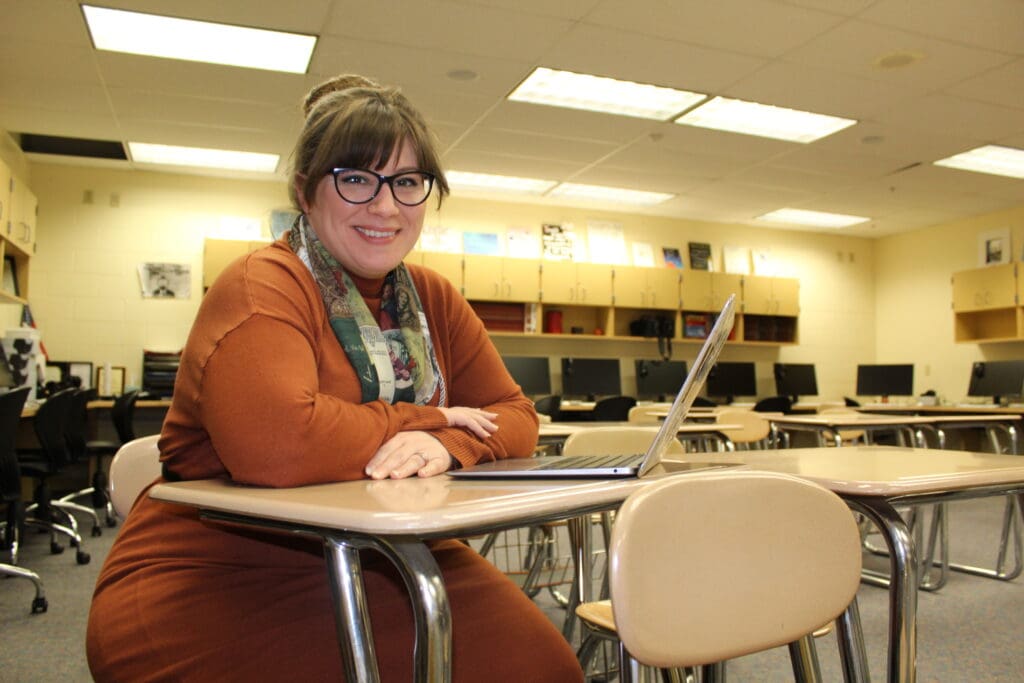
The month of Ramadan comes to an end with the celebration of Eid-Ul-Fitr, also known as the Festival of Sweets. It is one of the two major holidays celebrated in Islam. It is to commemorate the hard work Muslims put in to strengthen their faith, and a chance for family members and friends to get together and eat good food.
For more information, feel free to ask your friendly neighborhood Muslims any questions you might have, or refer to the pamphlet shared by the Muslim Student Association. Ramadan Mubarak!
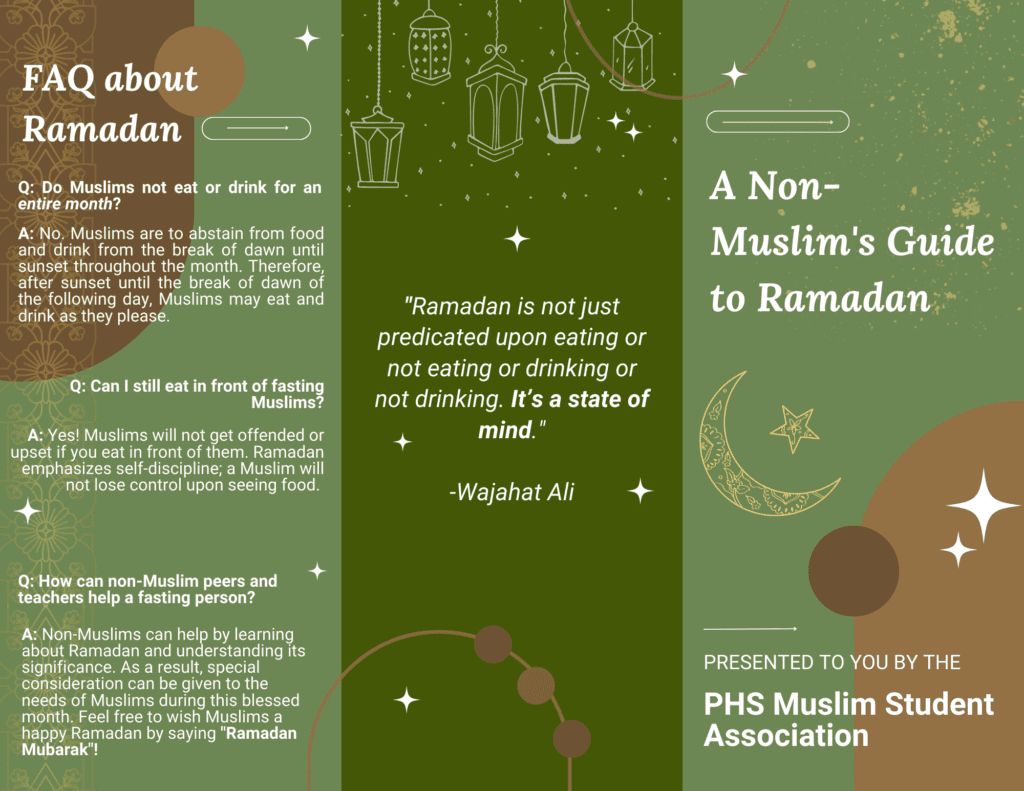
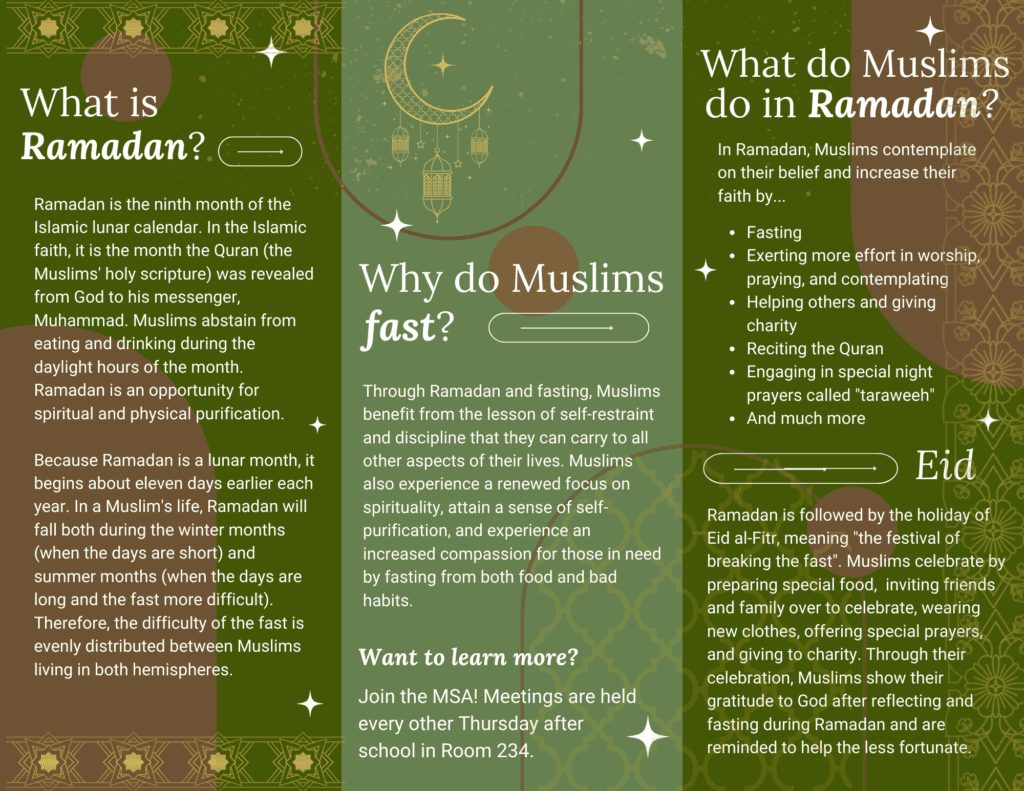
Other stories on the eSomethin:
- Business is booming: Maker-Preneurship is a business and production class at Perrysburg High School
- PHS Mock Trial Team Finds Historic Success At State Competition
- KKK flyers found in downtown Perrysburg, surrounding areas raise concerns for hate group revival in Wood County
- RubyCats provides a community for cats and people to connect in downtown Toledo
- A “papercut” in learning: printing reductions in place at Perrysburg Schools
